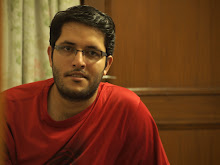
Jalaluddin Rumi There have been very few people who have moved and transformed as many hearts as Jalaluddin Rumi.
In the world of the Sufis, Mevlana Rumi is the emperor. His words have to be understood not as mere words, but sources of deep silences, echoes of inner and the innermost songs. He is the greatest dancer the world has known. Twelve hundred years have passed since he was alive.
His dance is a special kind of dance. It is a kind of whirling, just the way small children whirl; standing on one spot they go on round and round. And perhaps everywhere in the world small children do that and their elders stop them saying, "You will become dizzy, you will fall, you will hurt yourself," and, "What is the point of doing it?"
Jalaluddin Rumi made a meditation of whirling. The meditator goes on whirling for hours -- as long as the body allows him; he does not stop on his own. When whirling a moment comes that he sees himself utterly still and silent, a center of the cyclone. Around the center the body is moving, but there is a space which remains unmoved; that is his being.
"Jalaluddin Rumi is one of the greatest Sufi mystics. He is the only mystic whom Sufis have called Mevlana. Mevlana means, our Beloved Master.
A few people I love immensely. Mevlana Jalaluddin Rumi is one of them, and the reason I love him is that he was not life-negative, but life-affirmative. And the meditation that he has found and which has continued for seven hundred years among a small stream of mystics was the meditation of a certain kind of dance. His followers are called whirling sufis.
You must have seen small children -- they like to whirl; and everybody stops them, because the fear of the parents is that the child may fall, may have a fracture, may get hurt. But in spite of all prohibitions, children love to whirl. And nobody has inquired why children love, all over the world, irrespective of race, nation, religion, why children love to whirl.
Jalaluddin Rumi, seeing children whirl, thought that there must be something that the children feel but they cannot express, and perhaps they are not fully aware what it is. So he tried whirling himself, and he was amazed that if you go on whirling there comes a moment when the center of your being remains static and your whole body, mind, brain, everything, whirls.
And that center which does not whirl, is you, the center of the cyclone. The whirling is almost like a cyclone, but exactly in the middle of the cyclone you will find a point which has not moved at all. Every wheel needs a center on which to turn, and the center has to remain unturning. You see in bicycles, in bullock carts, wherever there is a wheel, there is something in the center which is unmoving.
Once Jalaluddin became aware that you can find the unmoving center of your being, he tried for thirty-six hours non-stop, without eating, without drinking -- he was determined to whirl to his absolute capacity, not to hold back anything... unless he falls, he is not going to stop. Thirty-six hours he whirled, a great crowd watched. The crowd went on changing; people had to go to eat and then they came again. People had to do their work and then they came again; thirty-six hours is a long period. And after thirty-six hours he fell down. And people heard a great laughter.
Jalaluddin was laughing loudly, and he said, "You think you have seen me falling, I have also seen myself falling. These thirty-six hours I have not moved a single inch. Now I don't have to go to Mecca in search of God, I have found him. In the unmoving center of my own being, he is."
The followers of Rumi don't have great scriptures, don't have any rituals, except whirling, and a few beautiful poems by Jalaluddin Rumi, which he used to sing after whirling and falling. He will get up and he will be so drunk -- in that drunkenness he will sing a song, and those songs have been collected. That is the only literature the followers of Rumi have."


No comments:
Post a Comment